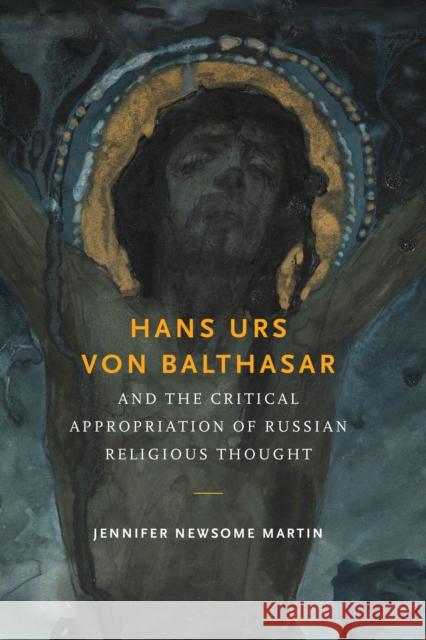Hans Urs Von Balthasar and the Critical Appropriation of Russian Religious Thought » książka
Hans Urs Von Balthasar and the Critical Appropriation of Russian Religious Thought
ISBN-13: 9780268035365 / Angielski / Miękka / 2015 / 324 str.
Hans Urs Von Balthasar and the Critical Appropriation of Russian Religious Thought
ISBN-13: 9780268035365 / Angielski / Miękka / 2015 / 324 str.
(netto: 129,76 VAT: 5%)
Najniższa cena z 30 dni: 130,31
ok. 30 dni roboczych
Bez gwarancji dostawy przed świętami
Darmowa dostawa!
In Hans Urs von Balthasar and the Critical Appropriation of Russian Religious Thought, Jennifer Newsome Martin offers the first systematic treatment and evaluation of the Swiss Catholic theologian's complex relation to modern speculative Russian religious philosophy. Her constructive analysis proceeds through Balthasar's critical reception of Vladimir Soloviev, Nicholai Berdyaev, and Sergei Bulgakov with respect to theological aesthetics, myth, eschatology, and Trinitarian discourse and examines how Balthasar adjudicates both the possibilities and the limits of theological appropriation, especially considering the degree to which these Russian thinkers have been influenced by German Idealism and Romanticism. Martin argues that Balthasar's creative reception and modulation of the thought of these Russian philosophers is indicative of a broad speculative tendency in his work that deserves further attention. In this respect, Martin consciously challenges the prevailing view of Balthasar as a fundamentally conservative or nostalgic thinker. In her discussion of the relation between tradition and theological speculation, Martin also draws upon the understudied relation between Balthasar and F. W. J. Schelling, especially as Schelling's form of Idealism was passed down through the Russian thinkers. In doing so, she persuasively recasts Balthasar as an ecumenical, creatively anti-nostalgic theologian hospitable to the richness of contributions from extra-magisterial and non-Catholic sources. "With her Hans Urs von Balthasar and the Critical Appropriation of Russian Religious Thought, Jennifer Newsome Martin has produced an accomplished, literate, and original contribution that is much needed in Balthasar scholarship. To my knowledge, this is the only text on Balthasar and three important Russian Orthodox thinkers--Soloviev, Berdyaev, and Bulgakov--who engaged ancient Christianity with modern philosophical currents. Additionally, Martin brings to light aspects of Balthasar's theological method that go beyond Balthasar's own importance to broader issues in theology." --Anthony C. Sciglitano, Seton Hall University
"This sophisticated introduction to Hans Urs von Balthasar's work shows readers who might be puzzled by some of his seemingly strange claims on infinite distance in the Trinity or the Urkenosis where these claims come from and why they get incorporated into his theology. Jennifer Newsome Martin situates Balthasar's work so that some of the more superficial criticisms are revealed as superficial. She shows the origins of some of the revisionist theories in theology proper and why Balthasar opposed rather than affirmed them." --D. Stephen Long, Cary M. Maguire University Professor in Ethics at Southern Methodist University











